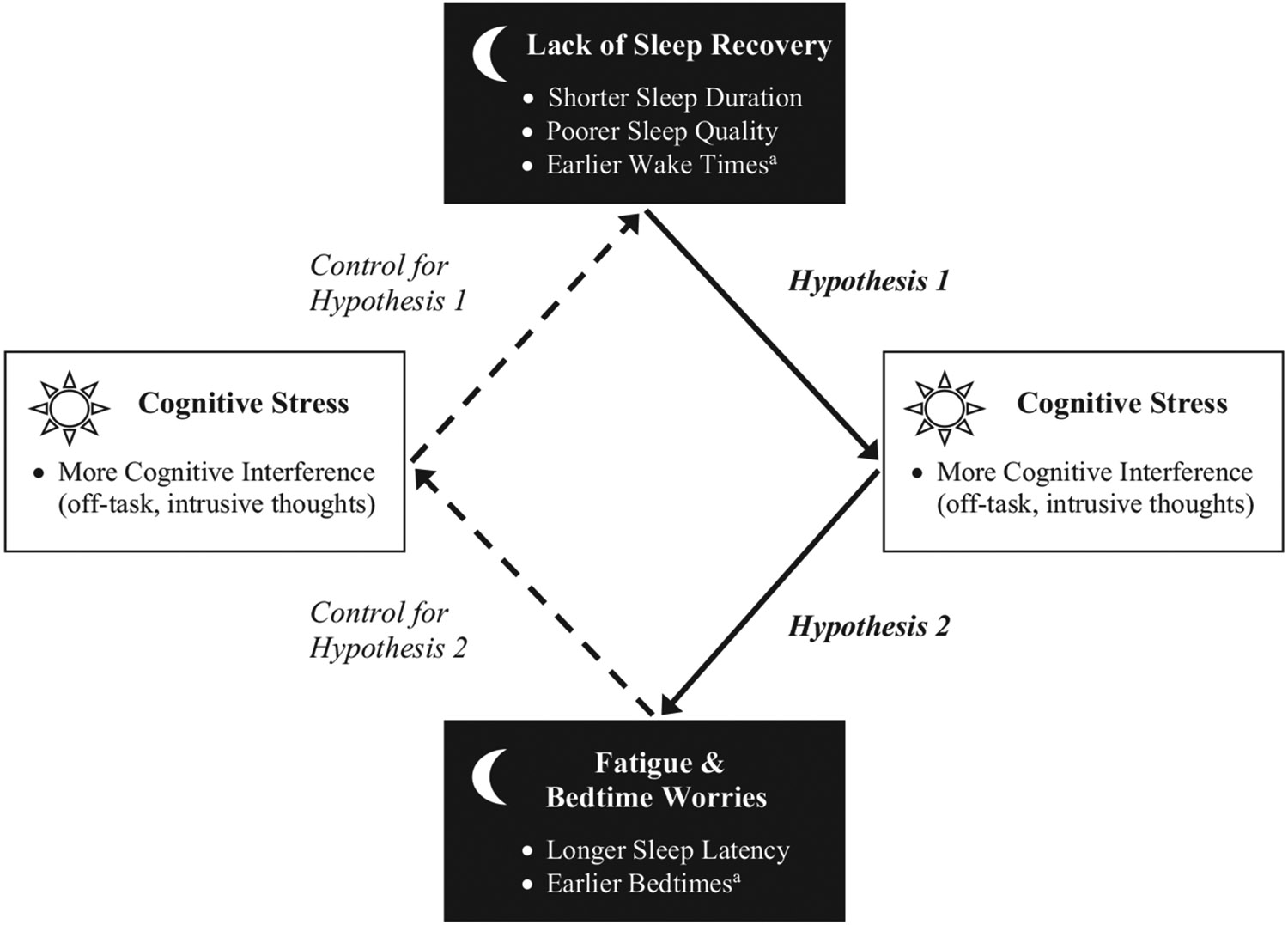Fig. 1.

Research model testing bidirectional associations between nightly sleep and daily cognitive interference. Note. The solid arrows with betas indicate hypothesized temporal associations. Hypothesis 1 tests whether lack of sleep recovery predicts more cognitive interference the next day; Hypothesis 2 tests whether experiencing more cognitive interference on a day predicts longer sleep latency and potential earlier bedtimes that indicate fatigue and bedtime worries. Dotted arrows are to control for the opposite direction of the hypothesized direction (eg, more cognitive interference → shorter sleep duration). a Tests with sleep timing variables (wake times and bedtimes) are exploratory.
